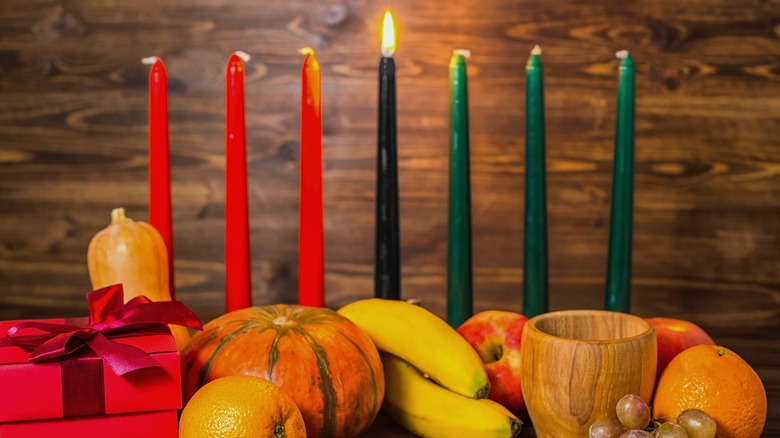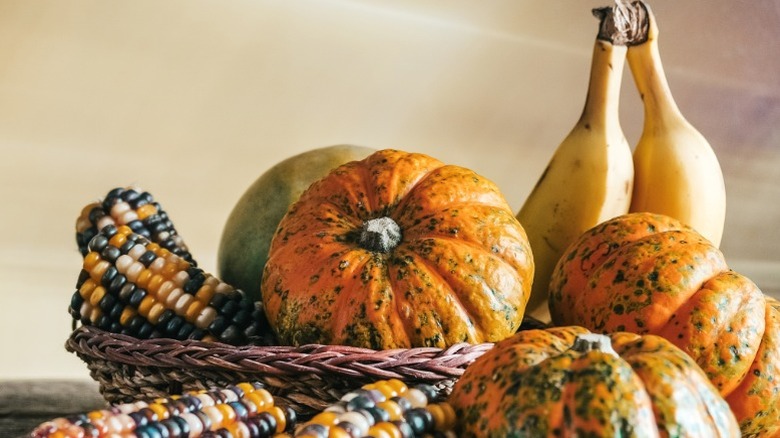The Importance Of Fresh Fruit And Vegetables At A Kwanzaa Celebration
Spanning December 26 to January 1, Kwanzaa is a holiday observed by the African diaspora as a way to honor various heritage and values. The seven tenets of this holiday are unity, self-determination, collective work and responsibility, cooperative economics, purpose, creativity, and faith. A few culinary Kwanzaa observations include cooking corn, black-eyed peas, and collard greens. Additionally, the tradition of decorating holiday tables with mazao (fresh fruits, nuts, and vegetables) represents the hard work and dedication of people coming together to create something important.
Fruit has long been a part of many celebrations. For instance, cranberries are important to American Indigenous peoples, while etrogs have a special significance for the Jewish Sukkot. Gardens have historically symbolized ideas of legacy and vitality, proving that communal efforts can create sustainable outcomes. As peoples of the African diaspora have faced displacement from their ancestral continent, displaying fresh produce during Kwanzaa gives them time and opportunity to recognize their relationships to the land and appreciate the efforts and labor of their families.
Kwanzaa celebrates food, family, and culture
Traditional African and soul food cuisines typically make up the Kwanzaa menu. Rice dishes like jollof and jambalaya or bean dishes like Hoppin' John have a spot on the holiday dinner plate in America. Mangoes, pineapples, oranges, peaches, yams, plantains, and sweet potatoes abound in the desserts. Vibunzi, an ear of corn, is perhaps the most notable crop associated with Kwanzaa. It honors the role of children in society and the communal project of raising the next generation. Many communities in Africa believe that childrearing extends beyond the nuclear family and that it takes a village to support the needs of all children. During Kwanzaa, it's customary to display one ear of corn for every child in the household. While the starch is used ceremonially, it also plays a role in recipes such as cornbread and seasoned corn on the cob.
Though inspired by ancient traditions, Kwanzaa is a modern holiday that was created during the height of the Civil Rights movement in the 1960s. Dr. Maulana Karenga, a professor and the department chair of Africana Studies at California State University, Long Beach, brought the holiday into being as a way for African Americans to unify during a time of intense political strife and cultural renaissance. Since food is one of many ways people can come together and find comfort in community, its role and symbolism in Kwanzaa helps African diasporic traditions thrive.

